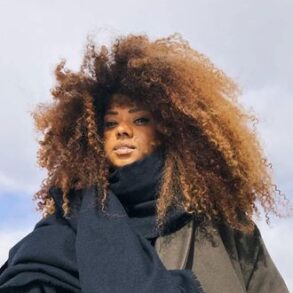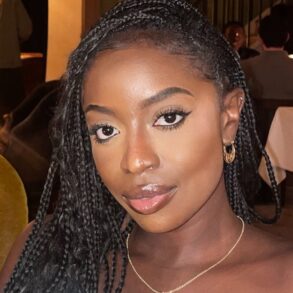Afro hair is not just a matter of aesthetics and fashion. Enslaved people used to create paths and maps in their curly hair to guide themselves when escaping their oppressors. Additionally, they would store wheat seeds in their hair, which they later planted in their territories. When they were forced to cut their hair or straighten it with chemical products, they were also cutting off their identity and roots with their culture.
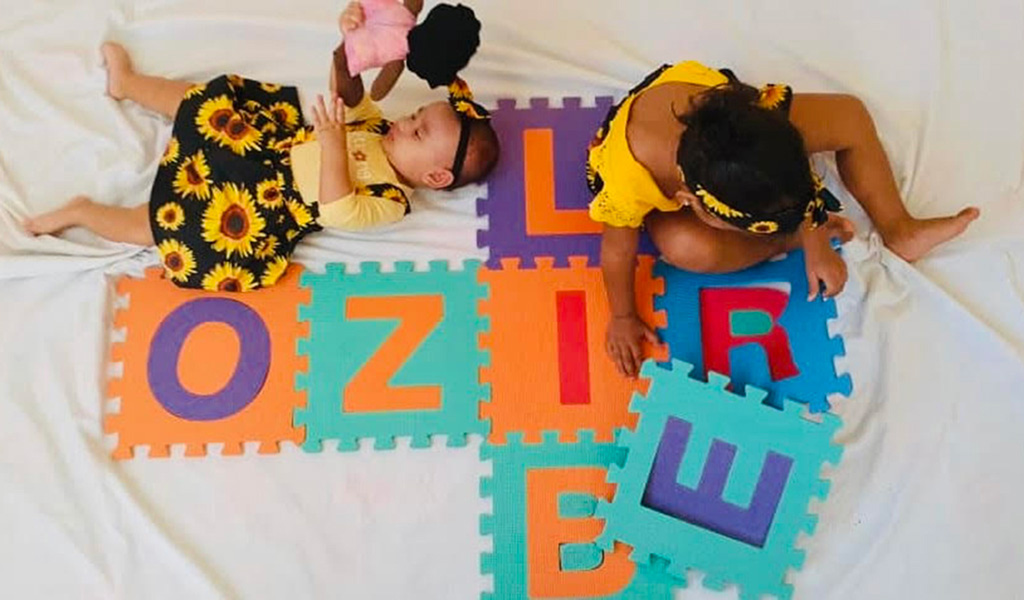
After the 1960s and the Black Power movement in the United States, wearing Afro hair became a political act of resistance, a symbol of reclaiming Black self-determination and “Blackness as identity.”
In Cuba, at least in the last decade, the wave of vindication has also been driven by various ventures seeking female empowerment and fighting against racial discrimination against Black women and men.
Rizo Libre (“Free Curl”), a community hair salon where Afro hair care is discussed through workshops and activities, is one of the initiatives aiming to rescue Afro-descendant roots on the island. Its creator, Yadira Rachel Vargas, is working to break stereotypes and achieve freedom so all people can be proudly Afro.
In her venture, Yadira uses the maxim “combing with philosophy” to promote a self-recognition process that allows Black people to engage in a broader conversation about racism, identity, self-esteem, beauty, and inclusion through their hair. While a large part of her community comprises women, she also conducts workshops for girls and boys and has received inquiries from many men.
Yadira, 31, is the mother of two young girls and an irredeemable lover of the arts and wood. She also says she found an essential piece of her life in Rizo Libre, delving into the world of styling Afro curly hair.
When asked how the idea came about, she returns to her childhood. At just 10 years old, she learned to braid her hair because she didn’t like the hairstyles her mother did for her. Then, in high school, she began styling her mother’s, aunts’, and cousins’ hair. Her aunt Nancy was a hairdresser, and with her, she acquired many techniques for hair care.
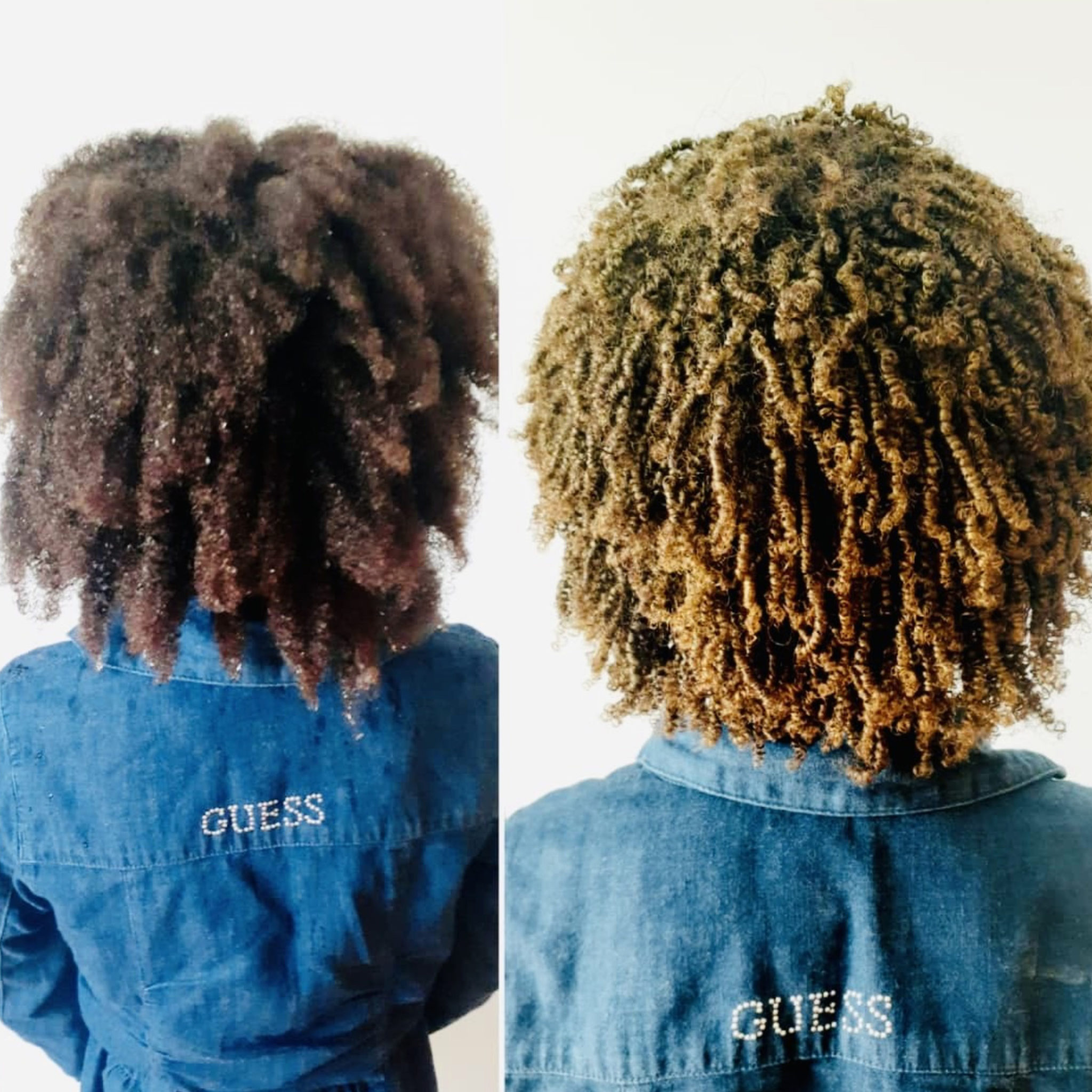



“My mother is an extremely authentic and natural woman in every sense. She never gave up on her hair, but thanks to my encouragement, she stopped straightening it, embraced her Afro identity, and started wearing it natural,” she says.
“My mom felt happy when I styled her hair and saw the results in the mirror, and that happiness was my fuel. There was the energy I had to enhance, and that was my drive to create Rizo Libre. It was like a prophecy longing to be fulfilled, and without realizing it, the dream materialized based on the care I learned to give to my hair and my mother’s hair.”
Yadira has proudly worn her natural hair since 2016. Three years later, she began studying everything related to its characteristics—what stylists call “hair diagnostic elements.”
“I followed the Colombian stylist and influencer Cirle Tatisy and various Brazilian stylists. In Cuba, I followed content on hair care, defining techniques, and cosmetic products for styling Afro curly hair from Beyond Roots and the brand Qué Negra,” she says.
Just 10 days after becoming a mother for the second time, Yadira decided to start styling professionally. As one of those strange coincidences of fate, her Aunt Nancy, from whom she learned a lot about hair care, passed away last year, so Yadira started the new business. Rizo Libre became her third child.
Defining Afro Hairstyles: Rizo Libre’s Growth
Yadira’s thermometer for measuring results and customer happiness is her before-and-after photographs. “I have had the joy of creating a wide spectrum of clients, from 5-year-old girls, teenagers, adults, elderly ladies, to young men and children. When it comes time for the final photo, I marvel at the poses, the expression on their faces, the carefree smile … then I know they are satisfied.”
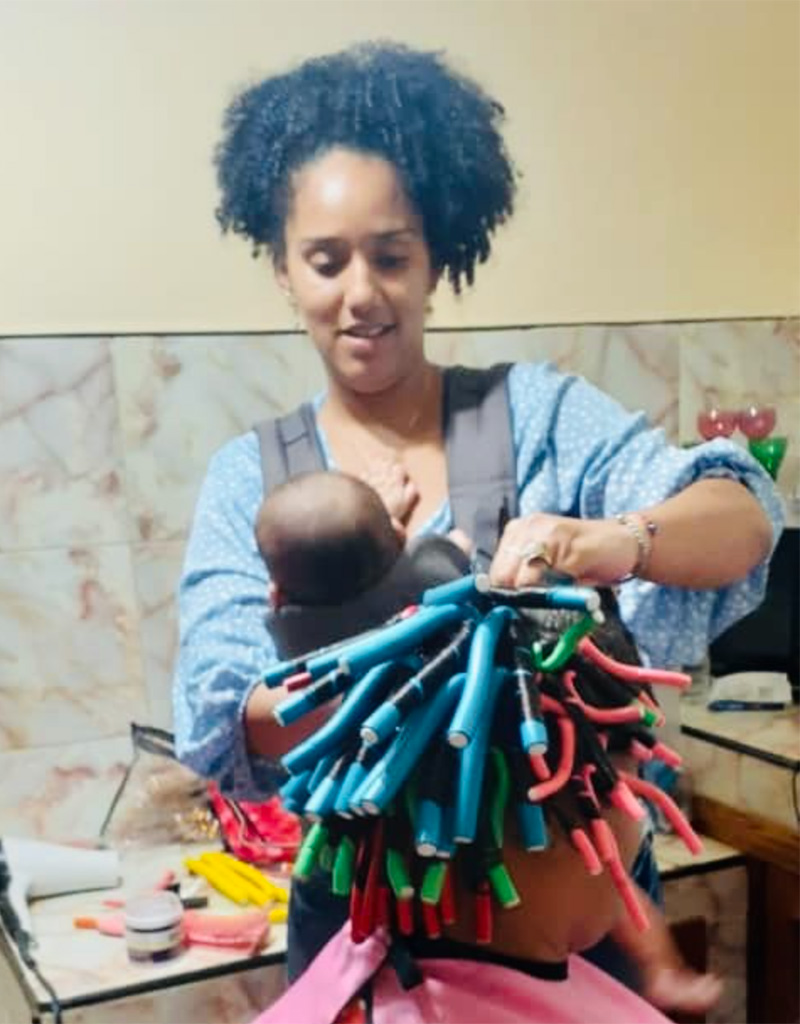



She feels very fortunate and adds, “Because despite being a new venture, I am constantly amazed by all the requests to come to Rizo Libre.”
Although it is a business primarily focused on female customers, she has also had male clients. “My husband was the first male model for Rizo Libre’s publications, and you wouldn’t believe the acceptance he had. They also want their crowns to shine. I love using the term ‘crown’ when referring to hair because it’s a powerful word, and I like my clients to feel like kings and queens when we finish styling.”
Even many white women also long to have well-cared-for curly hair. With a smile, she shares a personal anecdote. “Once, I wrote on my WhatsApp status about the beauty of curly and Afro hair of Black women in Cuba, and the doctor from my clinic responded by [asking] where did I leave curly white women like her. I agreed with her; I understood that curly white women observe what I do. For them, and for those who want to express themselves through their hair, Rizo Libre’s services are also available,” she said proudly.
“Every day, Rizo Libre gains new meanings. I am a historian, and I recently earned a master’s degree in Cultural Heritage Conservation. For many years, my passion for rescuing valuable, authentic, essential aspects and identity was reflected in my undergraduate thesis. But with Rizo Libre, I found the space to communicate those learnings that nourished and continue to nourish me as a woman, Black, Afro descendant, Cuban, practitioner of the Yoruba religion.”
For Yadira, each client is a fascinating world. “Listening to them speak while waiting for their crown to shine is an opportunity to understand Afro identity’s place in their lives. That’s why, in addition to posting hairstyles, I write texts to reflect on beauty paradigms; the vindication of type-four hair textures, which are full-fledged Afro hair; and other topics related to motherhood, which is my other driving force.”
Mother and Entrepreneur: Shared Identities
“My daughters are my teachers; each has taught me the most difficult lessons: patience and calmness. I have always considered myself determined and focused on my ideas and projects, but I only achieved the lucidity to materialize the idea of Rizo Libre after becoming a mother. Something changed inside me; I decided not to sabotage my happiness and started styling my hair even when the girls were little. They deserve an example of a mother happy with what she does and who strives to grow without them ceasing to be my priority.”
The entrepreneur has a strong support network built by her husband; her mother, despite the distance; her mother-in-law; and her daughters, who are the strongest support. “Meli, at 2 years old, stands in front of the mirror and touches her hair with her fingers and styles it. And Lucía, like clockwork, when I’m about to finish styling, starts demanding that I breastfeed her. In a few years when I look back on my life, I will think I was crazy to venture into entrepreneurship with two little kids, but it was worth it in the end,” she confesses.
Motherhood and entrepreneurship practically came together in her life. Therefore, she is in a phase of assimilating both. “I must achieve a balance between them because each one has its dynamics, but we cannot lose sight of the fact that time passes, and the business can prosper, but children grow, and that time does not come back. I am what is known as self-employed; I still do not have a team, but I know that the time will come, and I must be prepared.”
So far, the experience has been challenging because her husband also has his time occupied with work dynamics, and they must balance the loads so that both enjoy quality time with the girls. “I think we deserve the respect of our family and support to pursue our purposes without feeling guilty.”
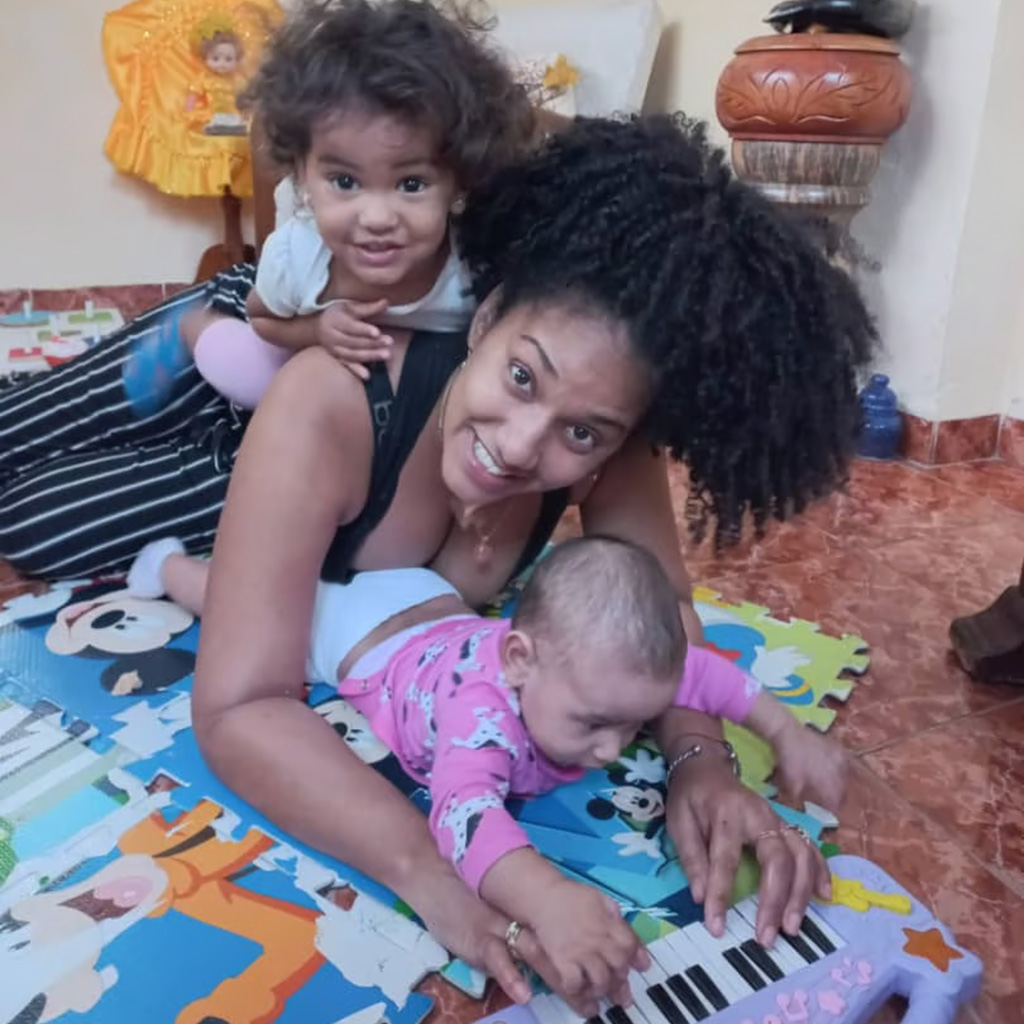



Just a few days ago, Yadira participated in an event called “Vibrating Among Bosses” that was aimed at personal development for women, mostly entrepreneurs, and designed by Adriana Heredia (leader of Beyond Roots) and Mario Ferrer (a digital marketing specialist).
“Connecting with empowered, resilient women, but at the same time being sensitive, was very inspiring for me. I went to the space with my youngest baby, just four months old, and we both received all the understanding and support to participate. Sometimes we need so much to feel listened to, and at the same time hear that we deserve care and respect, starting from ourselves. There were laughter, tears, and a lot of good vibes.”
More and more dialogue spaces are emerging on the island for the tribe of mother women. However, this type of initiative must continue to be encouraged and managed to incorporate all those who still feel lonely in their context.
Rizo Libre in the Future
Yadira has many dreams for her venture, but the immediate one is to grow and connect with the community of entrepreneurs for feedback on their businesses. “The intention will always be the happiness of our clients from the freedom to see themselves naturally and love themselves as such.”
As part of that support among ventures, Rizo Libre employs among its main products the cream and gel from the national cosmetics brand Qué Negra, developed by Erlys Pennycook Ramos from Ciego de Ávila, to provide new ways of treating hair in Afro-descendant men and women who choose to wear it naturally.
Yadira’s third child is her way of bringing new perspectives to the Cuban Afro-descendant community from the freedom of authentic and history-filled hair. “Rizo Libre is just a baby building its own identity as more people interact and leave their mark and experience while receiving hairdressing services.”
As a tribute to all the Black women who have trusted her hands to highlight the beauty that has been stigmatized for centuries, the entrepreneur and incomplete poet, as she calls herself, wrote “Monument to the Black Woman”:
Black woman who rises, awakening the dream of clay, my hands have not finished your feet, and your head has already thought of walking. I have had to open your mouth; there is no way you will remain silent. Your eyes discover me and question me, it is impossible not to attend to your impetus, your emphasis for me to put all the ancestral force into you.
You are not an easy idea to materialize! Give me light, my Black one; give me the ashé and the secret of your fierceness to fund and create life. Where do I put your children? In your hands, your chest, your back, tied to your waist, or lying at your feet? Some far away and others close? Happy and sad children? Victorious or successful children? It doesn’t matter, if in those breasts I made for you, it already seems like you’re going to breastfeed as if your cub had never grown up.
What are those hands doing, crazy one! Let me straighten your fist, let me refine your fingers more so you can finish squeezing, washing, writing, sowing, combing, and healing. Oh, your power to heal, holy Black, witch Black, and learned. Science and herbs, you carry them in equal measure. Let me smooth your calluses, and I’ll let you fly once and for all.
Back and pelvis, they are ready! There will be no man who can resist the charm of your walk. You are already upright, my Black one, ready to conquer spaces that by right you have known how to earn. Everyone will have to make way, everyone will have to greet, strong men, fat men, green men, those who earn less and those who earn more.
I’m going to your feet, my Black one. Your footprint in the clay is there, with a step overcome and a shackle to loosen. You’re standing on the world map, ready to unveil.
This story was originally published in El Toque (Cuba) and was republished within the Human Journalism Network program, supported by ICFJ, International Center for Journalists.




    |
Rachel Pereda
is a freelance journalist whose work has been published in El Toque and elsewhere. She is also the founder and writer of Periodista Mamarazzi. She is a mother and a lover of literature, impossible causes, photography, coffee, and adventure. She believes in magic and the story behind the story. |
This post was originally published on this site be sure to check out more of their content.






